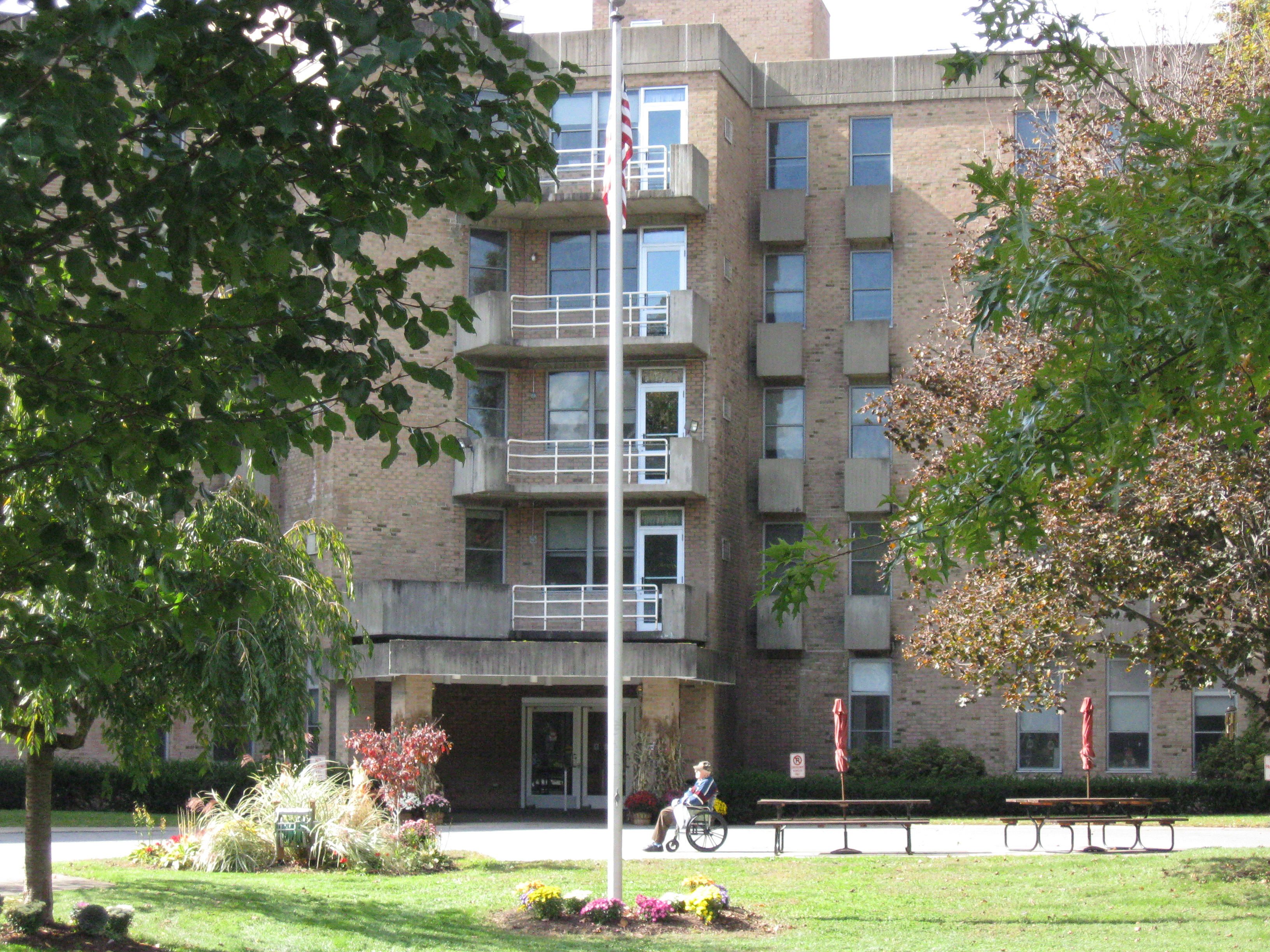Cultura y noticias hispanas del Valle del Hudson

Courtesy of Michelle Felle
Elderly Care
Interview with Michelle Feller, ArchCare from the Ferncliff Rehabilitation and Nursing Home
Por Eddy Mwamba
August 2023 Michelle Feller is an assistant administrator and program manager at the Arch Center for Memory Care in the elderly rehabilitation nursing home known as "ArchCare." Feller has been working there for 36 years. She started in the ArchCare kitchen at a very young age and truly enjoyed being with older people. While Feller has worked with other populations, such as children, she has always felt her calling to serve the elderly. Therefore, she expanded her education to work with them. Here, she talks about her work in the residence and the services offered for multilingual individuals.
Feller asserts that there are many things people should learn about elderly care: "People should not assume what elderly care is like until they come in and see it for themselves. It's not like the 1980s when residents spent their last days or simply resided without engaging in anything meaningful. However, elderly care has changed significantly to make patients feel more supported." Elderly Care offers supportive programs that involve the elderly in meaningful interactions they enjoy, such as recreational programming, spiritual activities, and physiotherapy, among others.
Feller adds, "These kinds of things help older adults feel at home by continuing to practice their cultures and beliefs in their new residences. Overall, Elderly Care supports patients and their families during the final stages of life, taking care of their physical comfort, and emotional needs, and ensuring dignity and respect. It is an honor for elderly care programs to provide specialized knowledge and skills to patients and their families and assist them during this stage of life."
Regarding residents who do not speak English
Feller explained, "First, for patients or residents whose English is not their first language, there are staff in the center who help them connect through translation, as there may be language barriers. Second, family members play a crucial role in making their loved ones' voices heard and communicating concerns or requests to the nursing home staff, helping them navigate any issues that arise. They have a communication board they can use with images. Finally, patients are also assisted through a service called Craig Home, which is available 24/7 to contact translators in any language."
Many nursing homes face special challenges with patients with dementia who speak languages other than English. This is because as patients age, they may revert to their original (native) language, which may not be English. Additionally, dementia can cause confusion even in their own language if they require interpreters. What patients say may not make sense, so the staff really has to work around that to anticipate their needs and understand what they are trying to convey.
ArchCare requests cultural information from families to ensure that patients feel respected, whether it's a holiday celebrated in their home country, a special diet that nurses must follow, or a specific religion to ensure that ArchCare also meets their needs in terms of religious interests. ArchCare relies on families to provide all cultural information before patients enter the building that will become their new home.
*Translated from Spanish by Karen Ruiz León
COPYRIGHT 2023
La Voz, Cultura y noticias hispanas del Valle de Hudson
Feller adds, "These kinds of things help older adults feel at home by continuing to practice their cultures and beliefs in their new residences. Overall, Elderly Care supports patients and their families during the final stages of life, taking care of their physical comfort, and emotional needs, and ensuring dignity and respect. It is an honor for elderly care programs to provide specialized knowledge and skills to patients and their families and assist them during this stage of life."
Regarding residents who do not speak English
Feller explained, "First, for patients or residents whose English is not their first language, there are staff in the center who help them connect through translation, as there may be language barriers. Second, family members play a crucial role in making their loved ones' voices heard and communicating concerns or requests to the nursing home staff, helping them navigate any issues that arise. They have a communication board they can use with images. Finally, patients are also assisted through a service called Craig Home, which is available 24/7 to contact translators in any language."
Many nursing homes face special challenges with patients with dementia who speak languages other than English. This is because as patients age, they may revert to their original (native) language, which may not be English. Additionally, dementia can cause confusion even in their own language if they require interpreters. What patients say may not make sense, so the staff really has to work around that to anticipate their needs and understand what they are trying to convey.
ArchCare requests cultural information from families to ensure that patients feel respected, whether it's a holiday celebrated in their home country, a special diet that nurses must follow, or a specific religion to ensure that ArchCare also meets their needs in terms of religious interests. ArchCare relies on families to provide all cultural information before patients enter the building that will become their new home.
*Translated from Spanish by Karen Ruiz León
COPYRIGHT 2023
La Voz, Cultura y noticias hispanas del Valle de Hudson
Comments | |
|
Comentario: Elder care is best done in community, not in segregation,
although I acknowledge the many dedicated staff that work in
old folk's homes, ( they do their best ) .
Although very imperfect , it was heartening to see that
Guatemala had no " old folk's homes " when I was there.
It takes a very strong community to care for the elderly in
a completely integrated fashion , but it will always be the
best .
The old can pass on wisdom and the young find meaningful
work in caring for them.
Posted: 8/12/2023 |
|

